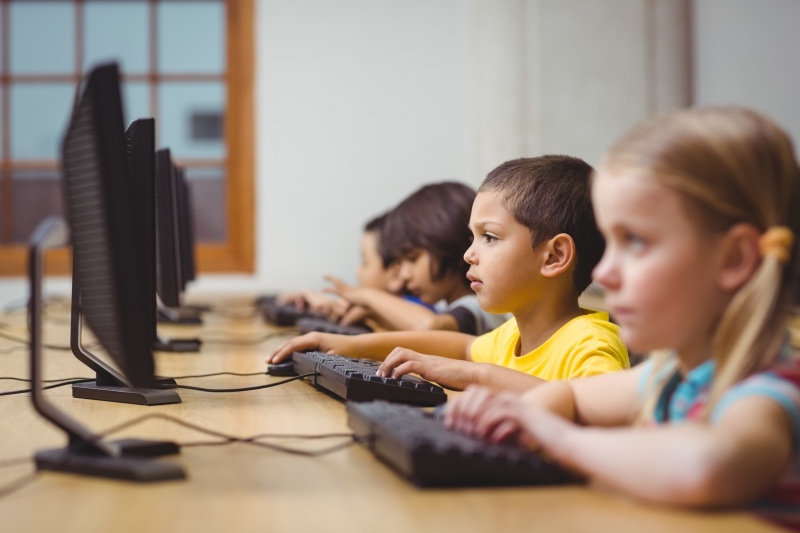Redeeming Our 936 Weeks From Too Much Screen Time
The Nature of Rest
What the Bible and Creation Teach Us About Sabbath Living
Intentional Parenting
Nature Studies
Apologetics
Adventure
Free Resource
Entrepreneurship
Homeschooling
Faith
Books
Categories
Master Naturalist, Bible teacher, author, wife, and mama of four! Join our adventures of discovering God while adventuring in creation.
I'm Eryn
Hey there!
Listen Now
Order now
 A Guest Post by author and speaker Arlene Pellicane
A Guest Post by author and speaker Arlene Pellicane
I remember a moment when I was sitting in church with my kids. A mom pulled out her phone for her toddler to play with. Immediately my three children stopped looking forward and fixed their eyes on that tiny phone in the row in front of us. They were instantly mesmerized.
The pull of electronic devices is strong and almost irresistible for both children and adults.
The digital world is hard to compete with. That’s why it’s up to us as parents to press that off button. It’s unreasonable to think a child would have the self-control to know when he or she had enough. Maybe you have a toddler who’s glued to an iPad or a teenager who constantly texts. How do you know when your child is engaging too much with screens? How do you know when you are?
In Eryn Lynum’s book, 936 Pennies: Discovering the Joy of Intentional Parenting, we as parents come to view time in a new light as we consider that we have only 936 weeks to invest in our children from birth to age eighteen. A jar of 936 pennies serves as a visual reminder of how short time is, and the importance of making intentional choices to spend that time in a beautiful manner. Time is too precious to waste our pennies on screen time.
It’s not unusual for us parents to accept our screen-saturated lives as normal. Yet there are those nagging thoughts which tell us things aren’t as they should be.
We don’t laugh as much as we used to.
It’s been a long time since we played a board game or played outside together.
Why are we always fighting about video games or turning off the TV?
That phone is driving me crazy!

In the days before tablets, phones, and flat-screens, kids played hide-and-seek and made up games with their imaginations. That’s probably how you grew up. Through that play time, we learned how to be creative and empathetic to the friend who skinned her knee. We learned how to interact with one another and handle winning or losing. These real world relational skills are largely absent from screen time.
Not only do you have to consider what bad habits or character traits your child may be picking up from media, you also must weigh what opportunities for emotional growth are being lost.
For children under two, it is best to avoid screens altogether according to the American Academy of Pediatrics (AAP). You would never know this based on the glut of educational screen-related products geared for babies and toddlers. Based on marketing, you would think your child will grow up disadvantaged without the latest app to help their language learning.

But nothing could be further from the truth! Nothing can beat the benefits of human interaction. Young children grow by discovering their world – a real three-dimensional world, not a flat screen of pixels. They thrive in a world full of people and things they can touch, taste, see, hear and smell. Toddlers who spend hours staring at a screen may not be fussing, but they are missing out on developing key motor and cognitive skills.
For children older than two years old, the AAP used to recommend no more than two hours of screen time a day, but now they simply say to “set limits”. As more schools incorporate screen time into the school day, it’s more challenging to stay under two hours. But it’s so important that your child has unplugged time each day to unwind, read, play outside, and talk to siblings and parents.

The reality in most homes is that we are not following healthy limits. The average American child age 8 to 18 spends more than 7 hours a day looking at a video game, computer, phone, or TV. In my book written with Dr. Gary Chapman, Growing Up Social: Raising Relational Kids in a Screen-Driven World, you will find a 10 question quiz to gauge if your child is getting too much screen time.
Here are four questions to get you started and help you evaluate where your child is today. Answer yes, no or sometimes:
____Your child is upset when you ask him to stop his screen activity to come to dinner or another activity.
____Your child asks you to buy a digital device after you have already said no.
____Your child has trouble completing his homework because he is busy watching television or playing video games.
____If you restricted all screen use for one day, your child would be irritable and whiny.
If you answered yes or sometimes to two or more questions, your child may be getting too much screen time. You will want to monitor screen time more strictly and be on alert for growing attachment to devices.

Why is this diligence necessary?
The parenting journey is too short to spend 7 hours or more a day occupied with screens, competing for your child’s attention, and missing out on critical emotional development and bonding. You don’t have to live like the norm, saturated with screens, and in many cases, addicted to screens. It’s okay to raise your kids differently. I promise you’ll be glad you did.
 Arlene Pellicane is a speaker and author of several books including 31 Days to Becoming a Happy Mom, Parents Rising, and Calm, Cool, and Connected: 5 Digital Habits for a More Balanced Life. She has been a featured guest on the Today Show, Fox & Friends, Focus on the Family, FamilyLife Today, The 700 Club, and Turning Point with Dr. David Jeremiah.
Arlene Pellicane is a speaker and author of several books including 31 Days to Becoming a Happy Mom, Parents Rising, and Calm, Cool, and Connected: 5 Digital Habits for a More Balanced Life. She has been a featured guest on the Today Show, Fox & Friends, Focus on the Family, FamilyLife Today, The 700 Club, and Turning Point with Dr. David Jeremiah.
Arlene earned her BA from Biola University and her Masters in Journalism from Regent University. Arlene lives in the San Diego area with her husband James and their three children. To learn more and for free family resources such as a monthly Happy Home podcast, visit www.ArlenePellicane.com
learn more
Raising kids stirs something deep in our souls — an innate knowing that our time is finite. Taking my kids outside in creation, I’m discovering how to stretch our time and pack it to the brim with meaning. God’s creativity provides the riches of resources for teaching the next generation who He is and how He loves us. Join our adventure and discover inspiration and resources for refusing rush, creating habits of rest, living intentionally, and making the most of this beautiful life!
I'm Eryn, Master Naturalist, Author, & Bible Teacher
Hey there!
Receive free inspirational resources for refusing rush, creating habits of rest, parenting with intentionality, and teaching our kids who God is through what He has made!
Inspired
Be
Brand + Website by Amarie Lael Design | TERMS & CONDITIONS + PRIVACY POLICY | Copyright 2011 - 2026 Eryn Lynum
Contact
Speaking & media
About
Books
Shop
Videos & Interviews
Email List
Stories
Free Downloads
Resources
Home
@erynlynumauthor
The Nature of Rest
What the Bible and Creation Teach Us About Sabbath Living
Now Available!
Order
X
Signed Copy

Add a Comment